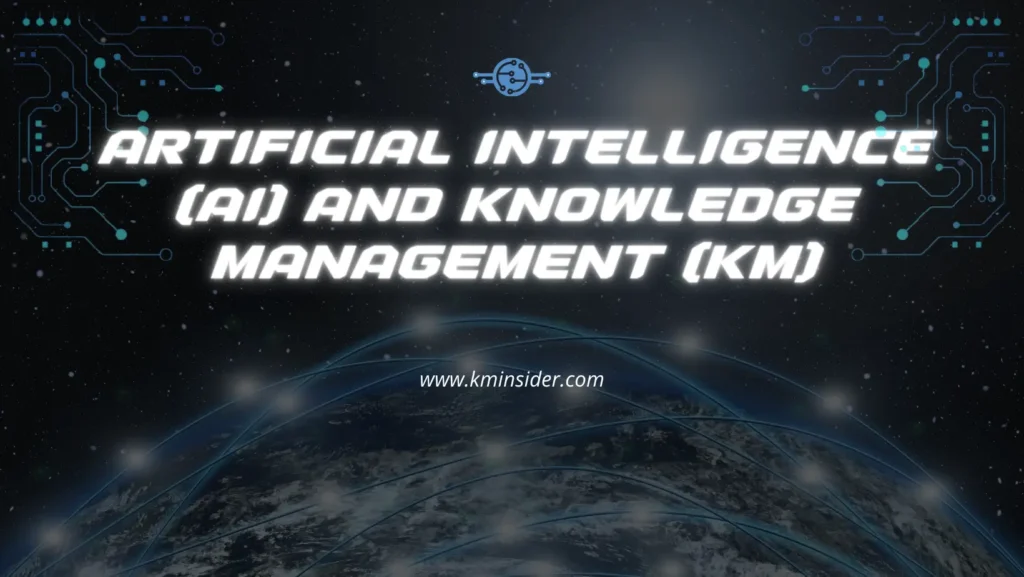Artificial intelligence and knowledge management are coming together. This change is reshaping how organizations find, share, and use their knowledge. For years, knowledge management (KM) systems relied on manual processes: documents were uploaded, tagged, stored, and often forgotten. With artificial intelligence (AI), that model is changing to a dynamic approach. This new method learns and adapts in real time.
In this article, we look at how artificial intelligence and knowledge management are changing business results. Companies need to accept this change to stay competitive in 2025 and beyond.

The Shift from Static KM to Intelligent KM
Traditional KM systems focused on content storage, searchability, and organizational taxonomies. While useful, they required constant manual input: employees had to tag, update, and retrieve knowledge themselves. This made knowledge systems slow, inconsistent, and difficult to scale.
AI changes this equation entirely. With tools like machine learning, natural language processing (NLP), and semantic search, knowledge systems can learn from user behavior. They automate content discovery and provide insights based on context.
What AI Brings to Knowledge Management
At the core of AI-enhanced KM are technologies that enable systems to:
- Understand context through NLP
- Detect patterns and relationships in unstructured data
- Predict user needs and deliver personalized results
- Learn from feedback and behavior over time
This turns a knowledge base from a passive archive into an intelligent advisor.
Benefits of Integrating Artificial Intelligence and Knowledge Management
1. Smarter Knowledge Discovery
AI-powered search engines use intent-based and semantic models to retrieve information more accurately. Employees do not need to know the exact words or file names anymore. They can ask questions in simple language and get clear, relevant answers.
2. Automated Classification and Tagging
AI eliminates the manual effort of labeling documents. It can scan a lot of text, find key themes, and add relevant metadata automatically. This improves content structure and makes it easier to search.
3. Real-Time Knowledge Recommendations
AI in knowledge management works like streaming platforms. It can suggest documents, policies, or FAQs based on what an employee is doing. This anticipates needs and accelerates task completion.
4. Knowledge Retention Across Workforce Changes
When employees leave, they often take undocumented knowledge with them. AI tools can capture, index, and store insights from conversations, emails, and documents—preserving institutional memory.
5. Faster Onboarding and Training
AI tailors onboarding experiences by delivering role-specific learning content. New hires get quicker access to what matters, reducing ramp-up time and dependency on manual guidance.
6. Content Gap Detection
AI identifies areas where information is lacking by analyzing search logs and usage patterns. If users frequently search for a topic with no results, the system flags it as a gap to address.
7. Improved Collaboration Across Silos
AI makes it easier to connect teams across departments and regions. By surfacing related knowledge, it encourages knowledge sharing and reduces duplicated work.
8. Data-Driven Decision-Making
AI analyzes access patterns, content usage, and behavior data. This helps leaders see what knowledge is most valuable. It also shows where the organization’s weaknesses are.AI analyzes access patterns, content usage, and behavior data. This helps leaders see what knowledge is most valuable. It also shows where the organization’s weaknesses are.
Real-World Use Cases
- IBM Watson: Automates document tagging, surfaces expert answers in real time, and powers smart KM across support teams.
- Microsoft Viva Topics: Uses AI to identify topics across Microsoft 365, organize them automatically, and create pages without human input.
- Coveo: Delivers AI-driven search and recommendations across digital experiences, enhancing KM in customer service and eCommerce.
Future of AI in Knowledge Management
The future of AI and KM lies in deeper personalization, generative knowledge synthesis, and multimodal interfaces. Generative AI will allow for real-time content creation. Voice and video will be as searchable as text. Knowledge management systems will change from storage places to active digital coworkers.
To stay competitive, organizations must use AI as the base of their knowledge strategy, not just as an add-on.
Final Thoughts
Artificial intelligence and knowledge management are no longer separate domains. Together, they create a powerful engine for organizational learning, innovation, and resilience. As AI improves, KM systems will become more important. These systems can think, learn, and grow with the teams they support.
Businesses that invest in smart knowledge management now will create a strong foundation for ongoing growth. This will help them stay flexible in a knowledge-driven economy.
Frequently Asked Questions
Disclaimer: The examples and technologies mentioned are accurate at the time of writing. For current capabilities, please consult official vendor documentation.
Subscribe to receive notifications for our free webinars on Knowledge Management.
